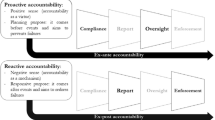Summary
Artificial Intelligence can be considered as the so far last attempt to decode the anthropological comparison between human beings and machines. Thereby it also represents in a prominent way what can be called “systemic thought”. Searle's conclusive argument against strong AI (that is the idea of computers having intention in a literal way) refers to his precise distinction between syntax and semantics. This difference obviously opposing some of Searle's other essential ideas will only convince if it also explains the genetic-pragmatic aspect. A theory explaining the “life of mind” and the possibility of understanding needs to combine representation and intention with the subjective causation of signs. At the same time they have to be contextualized within a model of teleologically interpreted life recognized with the help of self-experience and self-reflection. This suggests that AI is a simulation which wrongly believes to be a real duplication. Actually it is a semiotic reduction (syntax and semantic surface of signs only) and a psychological compensation (Turing test) connected with a genetic or abductive fallacy. The biological decontextualization, in fact the elimination of teleology and intention, the deconstruction of subjectivity, the loss of the genetic-pragmatic dimension and the abductive fallacy induce the strong AI to confuse its surface-illusion of simulated understanding with the real process itself.
Similar content being viewed by others
Author information
Authors and Affiliations
Rights and permissions
About this article
Cite this article
Zwierlein, E. Künstliche Intelligenz und Philosophie. Zeitschrift für Allgemeine Wissenschaftstheorie 21, 347–358 (1990). https://doi.org/10.1007/BF01801043
Published:
Issue Date:
DOI: https://doi.org/10.1007/BF01801043



